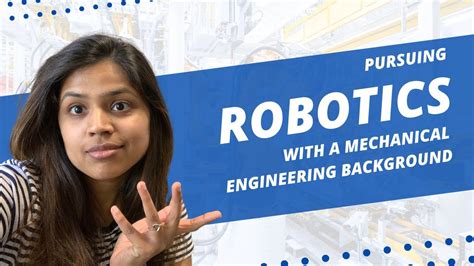Are you passionate about understanding how things work and finding creative solutions to complex problems? If so, a career in mechanical engineering could be the perfect fit for you. In this blog post, we will explore the exciting world of mechanical engineering and the various opportunities it offers for those with a knack for innovation and problem-solving.
From gaining a solid foundation in engineering principles to delving into the latest technological advancements, we will cover the essential skills and qualifications needed to succeed in this dynamic field. Additionally, we’ll discuss the benefits of pursuing a career in mechanical engineering, including the potential for lucrative job prospects and the opportunity to contribute to groundbreaking innovations.
With a focus on different specializations and educational pathways, we will provide insights into the diverse opportunities available for aspiring mechanical engineers. Whether you’re interested in gaining practical experience through internships or pursuing advanced degrees for professional development, we will guide you through the various options for growth and success in this field. Join us as we delve into the world of mechanical engineering and discover the endless possibilities for those who are ready to embrace the challenges and rewards that come with it.
Table of Contents
Introduction to Mechanical Engineering
Mechanical engineering is a diverse and exciting field that encompasses the design, development, and manufacturing of mechanical systems and products. It is a branch of engineering that deals with the principles of physics and materials science to analyze, design, and manufacture mechanical systems. Mechanical engineers are involved in a wide range of industries, including automotive, aerospace, energy, and manufacturing.
One of the key aspects of mechanical engineering is the application of mathematics and science to solve real-world problems. Mechanical engineers need to have strong analytical and problem-solving skills to design and develop efficient and cost-effective solutions for various applications.
Another important aspect of mechanical engineering is the emphasis on innovation and creativity. Mechanical engineers are responsible for creating new and innovative products and technologies that can improve the quality of life and make a positive impact on society.
Overall, mechanical engineering is a rewarding and challenging field that offers a wide range of opportunities for those who are passionate about creating and innovating. Whether it’s designing the next generation of vehicles or developing sustainable energy solutions, mechanical engineering is a field that offers endless possibilities for those who are willing to think outside the box and push the boundaries of what is possible.
Skills and Qualifications
When pursuing a career in mechanical engineering, it is important to possess a unique set of skills and qualifications in order to succeed in this dynamic field. One of the key skills required is strong analytical and problem-solving abilities. Mechanical engineers are tasked with finding solutions to complex problems, and the ability to think critically and logically is crucial. Additionally, a strong foundation in mathematics and physics is essential, as these subjects form the basis of many engineering principles.
Another important skill for a mechanical engineer is technical proficiency. This includes a deep understanding of engineering software and tools, as well as the ability to design, analyze, and optimize mechanical systems. Moreover, communication skills are vital, as engineers often work in multidisciplinary teams. The ability to convey technical information effectively and collaborate with colleagues is invaluable in the workplace.
When it comes to qualifications, a bachelor’s degree in mechanical engineering is typically the minimum requirement for entry-level positions. However, obtaining a master’s degree or professional certifications can enhance one’s credentials and open up more opportunities for career advancement. In addition to academic qualifications, practical experience gained through internships, co-op programs, and hands-on projects is highly regarded by employers. Such experiences provide valuable insight into real-world engineering practices and can set candidates apart in a competitive job market.
In conclusion, developing a strong foundation in both technical skills and educational qualifications is crucial for a successful career in mechanical engineering. By honing analytical, technical, and communication skills, and obtaining relevant academic and practical experience, aspiring engineers can position themselves for a rewarding and impactful career in this diverse field.
Benefits of Pursuing a Career in Mechanical Engineering
Choosing a career in mechanical engineering can offer a multitude of benefits for individuals who are passionate about problem-solving, innovation, and technology. One of the key advantages of pursuing a career in this field is the diverse range of opportunities available. Mechanical engineers are in demand across various industries, including automotive, aerospace, manufacturing, and energy. This means that individuals with a background in mechanical engineering have the flexibility to explore different sectors and find a niche that aligns with their interests and strengths.
Another benefit of choosing a career in mechanical engineering is the potential for career growth and advancement. As technology continues to evolve, the need for skilled mechanical engineers is only expected to increase. This provides a sense of job security and the opportunity to take on more challenging and rewarding roles as one gains experience and expertise in the field.
Furthermore, a career in mechanical engineering offers the satisfaction of working on projects that have a tangible impact on the world. Whether it’s designing more efficient engines, developing renewable energy solutions, or improving manufacturing processes, mechanical engineers play a crucial role in shaping the future and addressing global challenges.
Lastly, pursuing a career in mechanical engineering can also lead to attractive financial rewards. With the demand for skilled professionals in this field, mechanical engineers often enjoy competitive salaries and benefits, making it a rewarding and lucrative career path for those with a passion for innovation and problem-solving.
Understanding Different Specializations
When it comes to pursuing a career in Mechanical Engineering, it’s important to understand the different specializations available within the field. From mechatronics to thermal engineering, manufacturing to materials engineering, there are numerous paths a mechanical engineer can choose to specialize in.
Each specialization offers its own unique set of challenges and opportunities. For example, a mechatronics engineer might focus on the integration of mechanical and electrical systems, while a thermal engineer may work on developing energy-efficient heating and cooling systems.
By understanding the different specializations, aspiring mechanical engineers can make more informed decisions about their career paths. They can consider their interests, strengths, and long-term goals to choose a specialization that aligns with their aspirations.
Overall, having a strong grasp of the various specializations within the field of Mechanical Engineering can help individuals make strategic career choices and excel in their chosen area of expertise.
Educational Pathways and Degrees
When it comes to pursuing a career in mechanical engineering, there are various educational pathways and degrees to consider. Whether you’re just starting out or looking to further your education, it’s important to understand the options available to you.
One of the most common paths to becoming a mechanical engineer is to earn a bachelor’s degree in mechanical engineering. This typically involves a four-year program that provides students with a solid foundation in math, physics, and engineering principles.
For those who are looking to specialize or advance their careers, pursuing a master’s degree or PhD in mechanical engineering can open up even more opportunities. These advanced degrees can lead to roles in research, teaching, or leadership positions within the field.
Additionally, there are also alternative pathways for individuals who may not have taken the traditional route in their education. Some may choose to pursue an associate’s degree in mechanical engineering technology or undergo specialized training programs to enter the workforce more quickly.
Gaining Practical Experience and Internships
One of the most crucial steps in preparing for a successful career in mechanical engineering is gaining practical experience and internships. This hands-on experience allows students to apply the theoretical knowledge they have gained in the classroom to real-world engineering projects. Internships provide the opportunity to work alongside experienced engineers, gaining valuable insight into the day-to-day responsibilities and challenges of the profession.
Securing an internship in the field of mechanical engineering can be highly competitive, but the benefits are well worth the effort. It allows students to develop important professional skills, such as problem-solving, teamwork, and communication, while also building a network of industry contacts that can be invaluable for future job opportunities. Additionally, internships provide the chance to explore different specializations within mechanical engineering and gain a better understanding of which area of the field is the best fit for their interests and strengths.
Many companies use internships as a way to identify top talent and potential future employees, so performing well during an internship can lead to job offers upon graduation. In addition to gaining practical experience and making professional connections, internships can also provide insight into the industry’s work culture, values, and expectations, helping students to better prepare for their future careers.
Ultimately, gaining practical experience and internships in mechanical engineering is an essential step in transitioning from a student to a professional engineer. It provides the opportunity to apply academic knowledge to real-world problems, gain valuable skills and connections, and explore various career paths within the field.
Job Prospects and Salary Expectations
When considering a career in mechanical engineering, it’s important to be aware of the job prospects and salary expectations in the field. As a mechanical engineer, there are various industries that offer employment opportunities, including automotive, aerospace, energy, and manufacturing. With the growing demand for sustainable energy solutions and advancements in technology, mechanical engineers are likely to have a positive job outlook in the coming years.
Additionally, the salary expectations for mechanical engineers are quite competitive. According to the U.S. Bureau of Labor Statistics, the median annual wage for mechanical engineers was $88,430 in May 2020. The highest 10 percent earned more than $138,020. These numbers may vary depending on factors such as experience, education, and the specific industry of employment.
It’s also important to note that pursuing advanced degrees and gaining practical experience through internships or co-op programs can significantly impact job prospects and salary potential. Mechanical engineers with specialized skills and knowledge in areas such as robotics, automation, and renewable energy may have even greater opportunities for career advancement and higher earning potential.
Overall, the field of mechanical engineering offers promising job prospects and competitive salaries for those with the necessary qualifications and skills. With the continuous evolution of technology and the demand for innovative solutions, the future looks bright for mechanical engineers seeking fulfilling and lucrative careers.
Technology and Innovation in Mechanical Engineering
Technology and innovation play a crucial role in the field of mechanical engineering. From the design process to the development of new materials and systems, technological advancements have revolutionized the way mechanical engineers work. One of the most significant developments is the use of computer-aided design (CAD) software, which has transformed the way engineers conceptualize and create new products. With CAD, engineers can create detailed 3D models, simulate real-world conditions, and optimize designs for performance and efficiency.
In addition to CAD, advancements in material science have led to the development of innovative materials with superior properties. For example, the use of composite materials has enabled the construction of lightweight yet durable structures in aerospace and automotive industries. Moreover, the integration of smart materials has opened up new possibilities for adaptive and responsive systems, such as shape-memory alloys and self-healing materials.
Another area of innovation in mechanical engineering is automation and robotics. With the advent of advanced control systems and artificial intelligence, engineers can design and implement automated processes for manufacturing and assembly. Robotics has also made significant strides, with the development of autonomous systems for tasks ranging from inspection and maintenance to surgical procedures.
Looking ahead, the future of mechanical engineering will continue to be shaped by technology and innovation. Emerging fields such as nanotechnology and biomechanics are poised to revolutionize the way we design and engineer mechanical systems. As engineers embrace new technologies and push the boundaries of innovation, the possibilities for what can be achieved in mechanical engineering are endless.
Challenges and Problem-Solving in the Field
One of the biggest challenges in the field of mechanical engineering is the constant need for problem-solving. In this industry, engineers must be able to tackle complex issues and find innovative solutions to improve existing systems and processes. This requires a high level of analytical thinking and creativity.
Another challenge that mechanical engineers often face is the pressure to meet tight deadlines. Whether it’s the development of a new product or the optimization of a manufacturing process, there is often a sense of urgency in the projects they work on. This demands excellent time management skills and the ability to work efficiently under pressure.
Moreover, the ever-evolving technology in the field also presents a challenge to mechanical engineers. Keeping up with the latest advancements and integrating them into their work can be overwhelming. However, it is also an opportunity for growth and learning.
Furthermore, the field of mechanical engineering also involves working with interdisciplinary teams, which can lead to communication and coordination challenges. Engineers need to collaborate with professionals from various backgrounds, such as electrical engineering, computer science, and manufacturing, and this requires strong interpersonal and teamwork skills.
Continuing Education and Professional Development
Continuing Education and Professional Development
Continuing education and professional development are crucial components of a successful career in mechanical engineering. In today’s rapidly advancing technological landscape, it is essential for professionals to stay updated with the latest developments in their field. Pursuing continuing education not only enhances one’s knowledge and skills but also opens up new opportunities for career growth and advancement.
One of the key benefits of continuing education is the opportunity to specialize in a particular area of mechanical engineering. By taking advanced courses and obtaining specialized certifications, engineers can demonstrate their expertise in niche fields such as robotics, renewable energy, or aerospace engineering. This can lead to higher job prospects and increased earning potential.
Professional development also plays a crucial role in keeping mechanical engineers competitive in the job market. Industry-recognized certifications and credentials can set professionals apart from their peers and provide a competitive edge when applying for new job opportunities. Additionally, participation in professional organizations and networking events can help engineers build valuable connections and stay abreast of industry trends and best practices.
Overall, continuing education and professional development are essential for mechanical engineers looking to stay relevant and competitive in today’s dynamic job market. By investing in ongoing learning and skill development, engineers can position themselves for long-term career success and job satisfaction.





